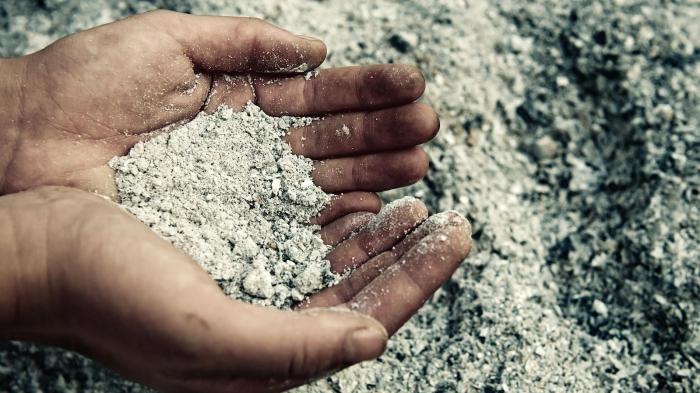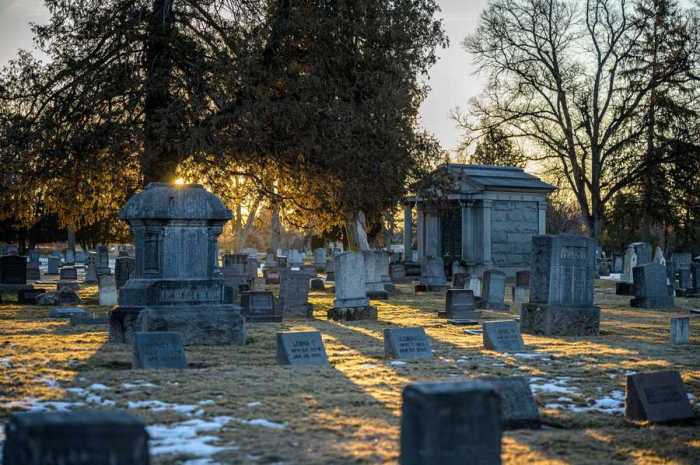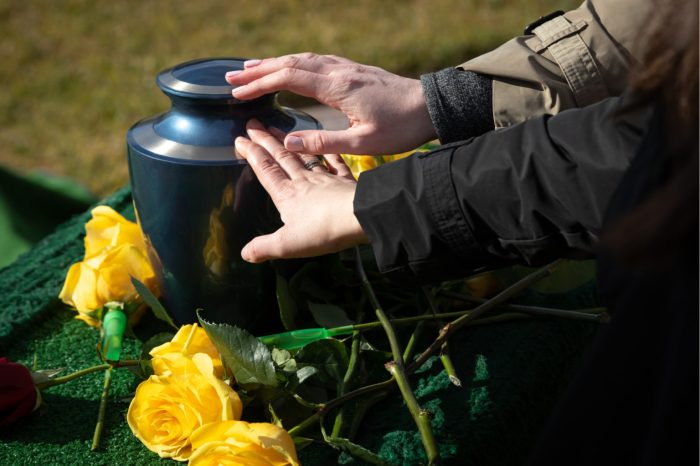Embarking on a journey of introspection, the ‘Should I Be Cremated or Buried Quiz’ delves into the multifaceted considerations that shape this deeply personal decision. From cultural beliefs to environmental concerns, financial implications to emotional factors, this guide unravels the complexities of cremation and burial, empowering individuals to make informed choices that align with their values and circumstances.
Navigating the maze of options, we explore the environmental impact of each method, contrasting emissions, land use, and resource consumption. Financial realities are laid bare, comparing the costs associated with cremation and burial, including funeral services, cemetery plots, and ongoing maintenance.
Personal Beliefs and Values

The decision between cremation and burial is deeply personal and influenced by an individual’s beliefs, values, and cultural background.
For many cultures and religions, cremation is seen as a way to release the soul from the body and prepare it for the afterlife. In Hinduism, for example, cremation is considered a sacred ritual that allows the soul to join with the divine.
Conversely, some Christian traditions view cremation as a desecration of the body, which is believed to be resurrected at the end of time.
Influence of Culture
- In Japan, cremation is the predominant practice due to limited burial space and cultural beliefs.
- In Ghana, burial is the preferred choice as it is believed that the deceased’s spirit remains connected to the family through the burial site.
Environmental Impact
Cremation and burial have different environmental impacts, affecting emissions, land use, and resource consumption.
Cremation, Should i be cremated or buried quiz
Cremation releases pollutants into the atmosphere, including carbon dioxide, nitrogen oxides, and particulate matter. The emissions vary depending on the type of cremator and fuel used.
Burial
Burial requires land, which can lead to deforestation and habitat loss. Traditional burials use non-biodegradable materials like caskets and vaults, contributing to waste and potentially contaminating soil and groundwater.
Sustainability
Natural burials and biodegradable urns offer more sustainable options. Natural burials use biodegradable materials and avoid embalming fluids, minimizing environmental impact.
Financial Considerations

Financial factors play a significant role in the decision between cremation and burial. Cremation generally involves lower costs compared to traditional burial, but expenses can vary depending on the chosen services and location.
Cremation Costs
- Basic Cremation:Involves the cremation process without additional services or ceremonies. Costs typically range from $1,000 to $2,500.
- Cremation with Memorial Service:Includes a cremation ceremony or memorial service at a funeral home or other venue. Costs can range from $2,000 to $5,000 or more, depending on the size and complexity of the event.
- Urn and Keepsakes:Urns for holding the cremains can range from $100 to $500, while keepsake jewelry or other personalized items can add additional costs.
Burial Costs
- Cemetery Plot:Acquiring a burial plot in a cemetery can be a substantial expense, with prices varying widely depending on location and availability. Costs can range from $1,000 to $10,000 or more.
- Casket:Caskets can vary significantly in price, ranging from $2,000 to $10,000 or more, depending on the material, size, and design.
- Burial Services:Funeral services, including a wake, visitation, and graveside service, can add to the overall cost of burial. These services typically range from $5,000 to $15,000 or more.
- Cemetery Maintenance:Ongoing maintenance costs for a burial plot, such as mowing, landscaping, and headstone upkeep, should also be considered.
Financial factors can heavily influence the decision between cremation and burial. Those with limited financial resources may find cremation to be a more affordable option. However, personal beliefs, values, and environmental concerns should also be carefully considered when making this decision.
Practical Considerations: Should I Be Cremated Or Buried Quiz
The practicalities of cremation and burial are significant factors to consider. These include space requirements, transportation logistics, and legal regulations.
Cremation requires less space than burial, making it a suitable option in densely populated areas or where land is scarce. Burial, on the other hand, necessitates a grave site, which may not be readily available or affordable.
Transportation
Transportation of the deceased is another practical concern. Cremation allows for easier transportation of ashes over long distances, which may be beneficial for families with members living far apart.
Legal Regulations
Legal regulations governing cremation and burial vary by jurisdiction. In some regions, cremation requires specific permits or authorizations. Burial may also be subject to regulations regarding the location and type of burial site.
Understanding the practical implications of cremation and burial can help individuals make informed decisions that align with their preferences and circumstances.
Emotional and Psychological Factors

Cremation and burial can evoke distinct emotional and psychological responses in family and friends. The choice between these options should consider the coping mechanisms and preferences of the bereaved.
Grieving Process
Grief is a complex and personal process that varies among individuals. Cremation may offer a sense of closure and finality, allowing mourners to say goodbye to the physical remains. Conversely, burial provides a tangible resting place that can facilitate visits and serve as a focus for remembrance.
Cultural and Religious Beliefs
Cultural and religious beliefs can influence the emotional impact of cremation and burial. In some cultures, cremation is considered a disrespectful act, while in others, it is a common practice. Religious traditions may also prescribe specific burial rituals or prohibit cremation.
Emotional Attachment to Remains
The level of emotional attachment to the deceased’s remains can influence the choice between cremation and burial. Some individuals may find comfort in having a physical body to mourn over, while others may prefer to remember their loved one through their memories or belongings.
Legal and Ethical Considerations
Cremation and burial are governed by various legal and ethical considerations, including consent, organ donation, and religious beliefs.
Consent
Consent is paramount in both cremation and burial. For cremation, the deceased must have provided written consent or have a legal representative authorized to make the decision on their behalf. For burial, consent is typically obtained from the next of kin or legal representative.
Organ Donation
Organ donation is an ethical consideration that may impact the choice between cremation and burial. Cremation can prevent the donation of certain organs, such as corneas and heart valves. If organ donation is a priority, burial may be the preferred option.
Religious Beliefs
Religious beliefs can influence the decision between cremation and burial. Some religions, such as Islam and Orthodox Judaism, prohibit cremation. Other religions, such as Hinduism and Buddhism, encourage cremation as a way to release the soul from the physical body.
Create a table comparing the pros and cons of cremation and burial.
Cremation and burial are two common methods of disposing of human remains after death. Each method has its own advantages and disadvantages, which should be carefully considered when making a decision about what is best for you.
The following table compares the pros and cons of cremation and burial:
| Factor | Cremation | Burial |
|---|---|---|
| Cost | Generally less expensive than burial | Generally more expensive than cremation |
| Environmental impact | Less impact on the environment than burial | More impact on the environment than cremation |
| Personal beliefs | May be preferred by those who believe that the body is not sacred | May be preferred by those who believe that the body should be preserved for the afterlife |
| Practical considerations | Can be done anywhere | Requires a cemetery plot |
| Emotional and psychological factors | May be easier to grieve without a physical grave site | May provide a sense of closure to have a physical grave site |
| Legal and ethical considerations | Legal in all states | Legal in all states |
Organize a bulleted list of questions to ask yourself when making the decision between cremation and burial.
Before making a decision between cremation and burial, it is important to consider your personal preferences, family traditions, and practical considerations. Here is a bulleted list of questions to ask yourself:
- What are my personal beliefs and values regarding death and the afterlife?
- Are there any religious or cultural traditions that I need to consider?
- What are my family’s wishes and expectations?
- What are the financial costs associated with each option?
- What are the practical considerations, such as the availability of burial space and the logistics of transportation?
- How do I feel about the idea of my body being cremated or buried?
- What are the environmental impacts of each option?
- Are there any legal or ethical considerations that I need to be aware of?
FAQ
Is cremation more environmentally friendly than burial?
While cremation releases emissions, burial requires land and resources for the cemetery and casket. Both methods have environmental implications, and the choice depends on individual priorities.
What are the religious considerations for cremation or burial?
Different religions have varying views on cremation and burial. Some religions prohibit cremation, while others encourage it. It’s important to consider religious beliefs when making the decision.
Can I donate my organs if I choose cremation?
Organ donation is possible before cremation, but not after. The timing of organ donation should be considered in the decision-making process.